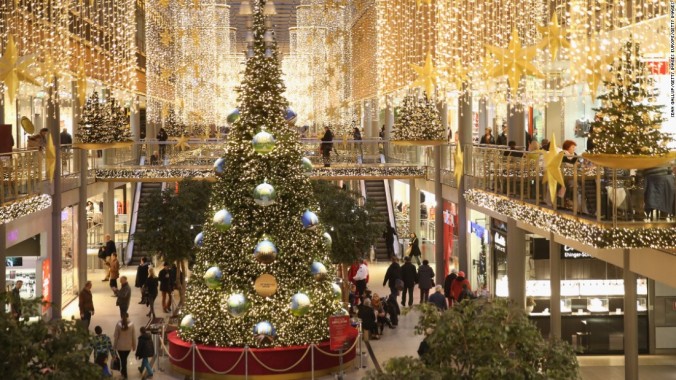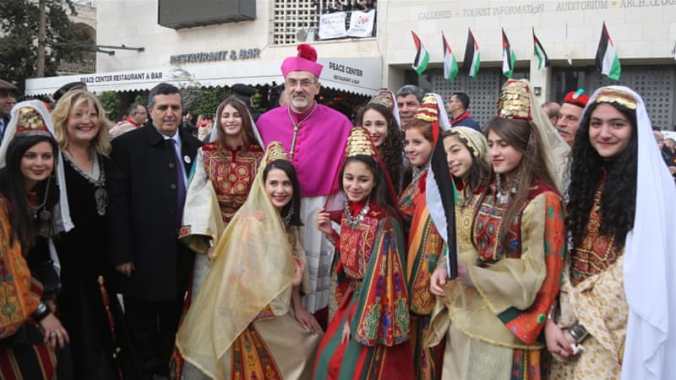 Mr. Vice President:
Mr. Vice President:
As you celebrate Christmas with your family and listen to the gospel story of the birth of Jesus, I hope you will read and reflect on the following piece I wrote a few years back.
I want you to open your eyes to the situation facing Palestinian Christians and Muslims living in the Holy Land. And I want you to understand why the Arab Christian leadership in Palestine was so troubled by your blindness to their plight that they refused to meet with you.
Christmas: Then and Now
Two thousand years ago, Palestine was subject to a harsh occupation, much as it is today. In some ways, though, the conditions back then allowed the residents of occupied Palestine greater mobility than the current inhabitants of that land.
As we are told in the bible story, Joseph had to take his expectant wife from Nazareth, where they were living, to Bethlehem, their ancestral village, in order to fulfill a requirement imposed by the authorities to register as part of a nationwide census. Today, of course, all of that would be impossible.
In the first place no Palestinian originally from Bethlehem could ever have moved to Nazareth. The occupation and closure of the West Bank makes that sort of movement impossible. Furthermore, Israeli law prohibits an Arab from Nazareth from marrying a Bethlehemite and bringing their spouse across the Green Line to live with them in Israel.
Additionally, while thousands of Palestinians in Bethlehem, both Muslim and Christian, can see Jerusalem from their homes, they can not go to the Holy City to pray. And Arab Christians from Jerusalem, likewise, can not easily go the Christmas services in Bethlehem to pray alongside their co-religionists at the seasonal event.

 MOSUL, Iraq – Cries of joy and seasonal hymns once again filled St. Paul Cathedral in Mosul as Christmas Mass was celebrated there for the first time in three and a half years, following the northern Iraqi city’s liberation from Islamic State militants.
MOSUL, Iraq – Cries of joy and seasonal hymns once again filled St. Paul Cathedral in Mosul as Christmas Mass was celebrated there for the first time in three and a half years, following the northern Iraqi city’s liberation from Islamic State militants. Beit Jala, Palestine – The
Beit Jala, Palestine – The  What impact can one encounter make?
What impact can one encounter make?
 Every Christmas, my wife, kids, and I make a road trip from Southern California to Texas to spend Christmas with my in-laws and my wife’s extended family. My wife’s parents and family members are Christians. One of my favorite things about visiting them during the Christmas holiday is the chance to be a part of such a warm, large, and loving gathering, typical of most Latino families. The food is amazing and our Christian family always makes sure to accommodate our Islamic dietary restrictions by ensuring there isn’t pork in any of the dishes.
Every Christmas, my wife, kids, and I make a road trip from Southern California to Texas to spend Christmas with my in-laws and my wife’s extended family. My wife’s parents and family members are Christians. One of my favorite things about visiting them during the Christmas holiday is the chance to be a part of such a warm, large, and loving gathering, typical of most Latino families. The food is amazing and our Christian family always makes sure to accommodate our Islamic dietary restrictions by ensuring there isn’t pork in any of the dishes. When a group of Oak Lawn Christians mentioned they needed a hand, a group of Bridgeview Muslims offered theirs.
When a group of Oak Lawn Christians mentioned they needed a hand, a group of Bridgeview Muslims offered theirs. The United Nations General Assembly isn’t alone in its lack of support for the Trump administration’s decision to move the U.S. Embassy in Israel to Jerusalem.
The United Nations General Assembly isn’t alone in its lack of support for the Trump administration’s decision to move the U.S. Embassy in Israel to Jerusalem.